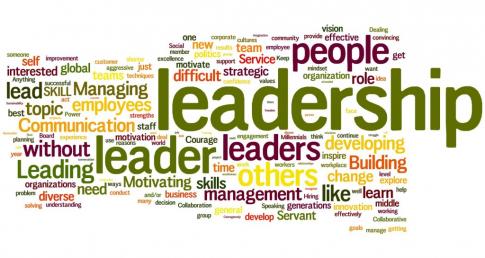Restoring Trust in Leadership

Recent polling confirms what street protests and online activism in recent years have already been indicating: the public's trust ...
Douglas Elmendorf *
Nitin Nohria *
Recent polling confirms what street protests and online activism in recent years have already been indicating: the public's trust in government and private institutions is dismally low. To change that, political, business, and civil-society leaders need to demonstrate honest, principled leadership that puts the public interest first.
DAVOS – As is often the case, informal conversations at the World Economic Forum’s just-completed annual meeting in Davos, Switzerland, inevitably alluded to the Edelman Trust Barometer, an annual poll of public confidence in business, media, government, and nongovernmental organizations. After all, Davos participants are leaders in these fields, and the results of the most recent poll are chastening.
In 2017, 71% of respondents globally considered government officials not credible or only somewhat credible, and 63% of respondents had the same dismal view of CEOs. This should not come as a surprise. Across dozens of countries, people have been airing their grievances against the status quo through social media, protests, consumer choice, and the ballot box.
Societies and economies pay a high price when citizens do not have faith in public- and private-sector leaders. Distrust leads to political polarization, widespread anxiety about the future, and uncertainty in domestic affairs and international relations. And these symptoms then reinforce the loss of trust, creating a vicious circle.
Clearly, citizens should be able to expect more from their leaders. To that end, as the deans of the Harvard Kennedy School and the Harvard Business School, respectively, we strive to impart the values of effective leadership to our students. We teach them that leadership is not about opportunism or winning at any cost. It is about advancing the common good and making a difference in the world.
The most effective business leaders care about more than quarterly profits or beating the competition, just as the most effective government leaders care about more than winning the next election or grabbing headlines. In any domain, an effective leader looks out for everyone he or she serves, and adheres to a set of core values.
If people in positions of power aspire to this vision of principled leadership – at work and in their own lives – trust in businesses, governments, and civic institutions can be restored around the world. But they will also need to consider the root causes of the problem.
First and foremost, people simply do not trust their leaders always to speak honestly. To change that, the effective leader must show that he or she values truth and evidence above all else. By valuing truth, one forces oneself to make decisions based on sound reasons rather than self-interest. When tempted by self-interest, aspiring leaders should emulate figures known for their honesty and truth-telling, such as Warren Buffett or Winston Churchill.
Beyond honesty, effective leadership also requires respect for individuals, regardless of their demographic background or past experiences. People understandably become disillusioned when their government or the business community doesn’t seem to value them, especially when such treatments stems from their gender, race, religion, sexual identity, or national origin. To prevent that from happening, public- and private-sector leaders should focus on building diverse and inclusive organizations, as Tim Cook has done since becoming the CEO of Apple.
Moreover, respecting people means listening to their viewpoints and not talking past them, even when you disagree. Thus, an effective leader is one who promotes free speech, engages in civil discourse, and remains open to compromise. Even when a decision doesn’t go someone’s way, that person will want – and deserves – to be heard.
The challenge for leaders, then, is to find ways to work with people who hold different opinions without abandoning their own core principles. One model for this style of leadership is Robert Zimmer, the president of the University of Chicago, who advocates for free and open speech even when the ideas being espoused are unpopular or distasteful. As Zimmer wrote in the University of Chicago Magazine in 2016, “Universities cannot be viewed as a sanctuary for comfort but rather as a crucible for confronting ideas.”
Lastly, effective leadership means delivering excellent and responsive service to one’s customers or constituents, as Michael Bloomberg did as the mayor of New York. When people do not feel that their leaders are working in their interest or addressing genuine needs, they lose confidence. To restore it, government officials must build and defend robust civic institutions and political processes that serve the public interest; and businesses must ensure that they are working effectively for all of their stakeholders.
Accordingly, public- and private-sector leaders should look for ways to help those who feel frustrated and left behind economically or socially. One good model is Year Up, a fast-growing nonprofit organization founded by Harvard Business School graduate Gerald Chertavian in 2000. Year Up helps disadvantaged urban youth acquire the skills they will need for higher education and professional careers. Another good model is Girls Who Code, which Harvard Kennedy School graduate Reshma Saujani founded in 2012 to address the tech sector’s gender gap.
The success of these programs shows that when leaders focus on creating opportunities for people who have not been treated fairly, they can build more cohesive societies and equip more people to contribute productively to the economy. Looking ahead, governments, businesses, and civil-society organizations must put values-driven leadership at the heart of their missions.
*Douglas Elmendorf is Dean and Professor of Public Policy at Harvard Kennedy School.
*Nitin Nohria is Dean at Harvard Business School.




 del.icio.us
del.icio.us Digg
Digg

Post your comment